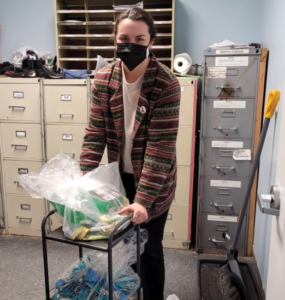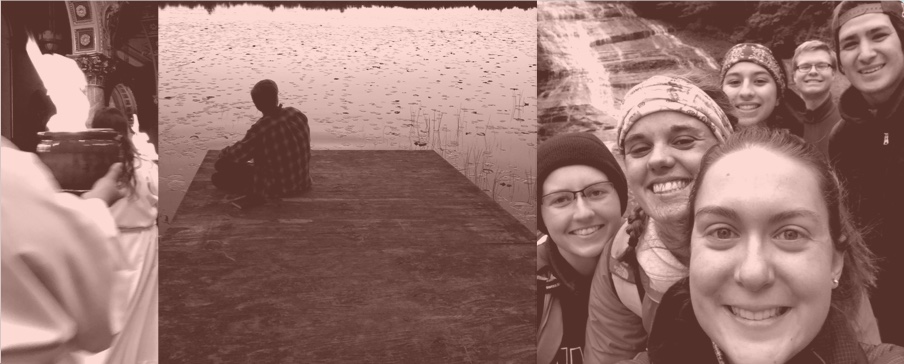Brave Enough to Believe

Witnessing homelessness eight hours a day, five days a week, inside a shelter, looks very different than 30 seconds at a street corner. I think when most people hear the word homeless, several assumptions come to mind. Perhaps they imagine a person who is dirty, poor, unstable, and maybe even lazy, crazy, and scary. All things that most of us generally want to avoid. What we often don’t imagine are the circumstances in their life that may have led to homelessness as well as the institutions and systems in which they have participated.
Here are a few of the questions I’ve learned to consider: What was their childhood like? Were they born with any developmental or intellectual disabilities? Where did they go to school and for how long? How much family and community support have they had? Do they have physical or mental health conditions? Are they on parole and therefore required to reside in a certain zip code in which they have no home? Did they lose a loved-one and turn to drugs or alcohol to cope because that was their only familiar and accessible outlet? Have they experienced accidents or trauma that has changed their capacity for independence? Along with countless other possibilities, these are some of the circumstances I encounter every day.
The men at the shelter have shown me that the causes of homelessness are far deeper and wider than any one person’s choices. One young man, whom I’ll call Jesse, shared with me that when he was seven years old, he found his mother’s body after her boyfriend had stabbed her to death. With no family to take care of him, Jesse spent the rest of his childhood in foster care and began spending time on the streets, often breaking the law in order to survive. This soon landed him in jail for several years. After being released, he tried to rebuild his life with an old girlfriend. They had a daughter together, and Jesse was working hard to care for his new family, yet the pressure of providing along with the lack of family experience in his own life became more than he could manage. He tried to use gambling to cope with the stress and gain more money for his family, but he ended up losing much more than he gained. When Jesse’s girlfriend learned about this, she kicked him out, and with no resources or support, he found himself homeless.
Jesse’s story reminds me of another man I’ve met at the shelter, whom I’ll call Tom. Tom is in his late thirties with a wife and two daughters. They had a home in Syracuse and Tom was working as a cook at a local restaurant, but when the pandemic began in the Spring of 2020, Tom lost his job. Shortly after this, his nine year old daughter was diagnosed with leukemia. Under the gravity of their situation, Tom and his wife started fighting until it was so unbearable that he had to leave the house. With no job, no resources, and no support, Tom found himself homeless. These circumstances of tragedy and tension in the household are only the beginning of the terribly unfortunate realities that lead countless men to the shelter.
What I hear most commonly are stories of life-long disabilities with insufficient care, and instances of injuries or trauma that leave permanent and life-altering consequences. There are several men at the shelter with autism spectrum disorder (ASD), or various other intellectual and mental health conditions, who have not received adequate treatment or support throughout their lives. Such diagnoses and lack of resources can make it increasingly difficult for these men to maintain an income, pay their bills, access transportation, manage their schedules, and complete other necessary tasks of living independently.
Along with conditions that may have been present since birth, there are many men who have sustained serious injuries or trauma that have altered their behavior, memory, judgment, and abilities. I’ve met several veterans who have returned from serving in the military with traumatic brain injuries (TBI), amputated limbs, and post traumatic stress disorder (PTSD). Without adequate support for their situation, these men struggle to cope with the demands and stresses of daily life, and living in a shelter with fifty other men often makes it even harder.
Witnessing the harsh realities surrounding homelessness, I’ve been both heartbroken and amazed by the kind and courageous men who dare to keep working their way out of the cycles and systems which seem to continue dragging them back in. I’ve realized how easy it is to become cynical in the face of constant defeat, rejection, and violence; however, I’ve also learned how sweet and beautiful the triumphs can be when we are brave and perhaps foolish enough to believe so strongly in reaching a better future that we actually create it.
Categories: General
← Back to Stories

